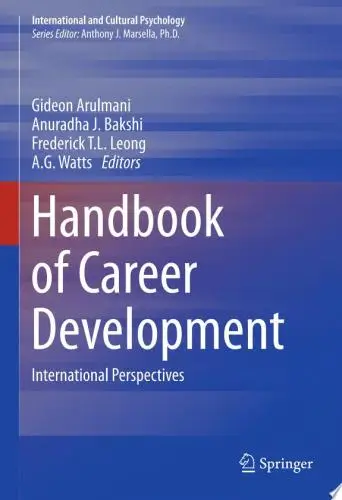Talent is Overrated
What Really Separates World-Class Performers from Everybody Else
What's it about?
Talent is Overrated challenges the belief that success is solely determined by innate abilities. Geoff Colvin argues that deliberate practice, not talent, is the key to excellence in any field. Through real-life examples and scientific research, he demonstrates how anyone can achieve mastery through focused, purposeful practice. This book is a must-read for those looking to unlock their full potential and excel in their chosen endeavors.
About the Author
Geoff Colvin is an accomplished author and journalist, best known for his insightful analysis on business and economic trends. His work, including the notable book "Talent Is Overrated," delves into the drivers of high performance in individuals and organizations, challenging conventional wisdom with a blend of rigorous research and engaging storytelling.
10 Key Ideas of Talent is Overrated
Embrace Deliberate Practice
Focus on activities specifically designed to improve performance, often with a teacher's guidance.
Deliberate practice involves stepping outside your comfort zone and working on tasks that are just beyond your current abilities.
This method is crucial because it pushes you to refine and expand your skills through targeted effort rather than repetitive, mindless actions.
Learn DeeperIdentify Your Weak Points: Start by critically assessing your current skill level in the area you want to improve. Pinpoint specific aspects where you're lacking. This could involve recording yourself, asking for feedback from peers or mentors, or comparing your work against a standard of excellence.
Set Specific, Challenging Goals: Break down your ultimate goal into smaller, manageable tasks that are slightly out of your comfort zone. These should be specific (e.g., increase typing speed to 80 words per minute) and have a clear metric for success.
Seek Expert Guidance: Find a coach, mentor, or teacher who can provide you with feedback and guidance. This person should be skilled in the area you're looking to improve and able to offer constructive criticism.
Design Your Practice Sessions: Tailor your practice sessions to focus on the weak points you've identified. Ensure these sessions are structured, with clear objectives for what you want to achieve each time.
Embrace Feedback and Reflect: After each practice session, seek feedback on your performance. Reflect on what you did well and what could be improved. Use this information to adjust your future practice sessions.
- Example
If you're aiming to improve your public speaking skills, you might start by recording your speeches to identify weaknesses like filler words or lack of eye contact. Then, set a goal to reduce filler words by half in your next speech, and practice speaking in front of a mirror or a small audience to get comfortable with maintaining eye contact.
- Example
For someone looking to become a better writer, the first step could be identifying issues with structure or clarity in their writing. They might then set a goal to write a 500-word article each week, focusing on improving one aspect at a time, such as creating clearer outlines before writing or using simpler language. Seeking feedback from a writing group or mentor after each piece can provide targeted advice for the next piece.
Set Specific Goals
Rather than aiming for vague improvements, set clear, achievable objectives.
Specific goals guide your deliberate practice by providing a clear direction and measurable milestones.
This approach ensures that your efforts are focused and aligned with your overall aspirations, making it easier to track progress and make adjustments as needed.
Learn DeeperBreak Down Your Goals: Start by identifying your ultimate objective. Then, break it down into smaller, more manageable goals. For instance, if you're aiming to improve your public speaking skills, a smaller goal could be to practice speaking for five minutes in front of a mirror every day.
Measure Your Progress: Keep a journal or log where you track your progress towards your specific goals. Note improvements, challenges, and any adjustments you make along the way. This will not only keep you motivated but also help you see how far you've come.
Seek Feedback: Regularly ask for feedback from mentors, peers, or professionals in your field. Specific goals are easier to achieve when you know what aspects need improvement. Use this feedback to refine your approach and set new, targeted objectives as you progress.
Celebrate Milestones: Recognize and celebrate when you reach a milestone. This could be mastering a particular skill within your larger goal or achieving one of your smaller objectives. Celebrating these achievements will keep you motivated and focused on your path.
- Example
If your goal is to become proficient in a new language, a specific objective could be to learn and use five new words each day. You could track your daily progress in a notebook or app, and periodically test your comprehension and speaking skills with a native speaker.
- Example
For someone aiming to run a marathon, a specific goal might be to increase running distance by 10% each week. They could use a fitness tracker to monitor their progress and adjust their training plan based on their performance and how their body responds.
Seek Immediate Feedback
Immediate feedback on your performance allows you to understand what you're doing right and where you need improvement.
This real-time information is vital for making quick adjustments and avoiding the reinforcement of incorrect techniques or approaches.
It accelerates learning by clearly showing the effects of your efforts and guiding your next steps.
Learn DeeperSet up a feedback system: Whether you're learning a new skill, working on a project, or trying to improve at your job, establish a way to get immediate feedback. This could be through a mentor, a coach, an app, or even self-assessment tools that give you instant results.
Use technology to your advantage: Leverage apps and online platforms that offer real-time feedback. For example, if you're learning a language, use apps that correct your pronunciation instantly. If you're into sports, consider gadgets that analyze your performance right away.
Create a feedback-friendly environment: Encourage openness and constructive criticism in your team or learning group. Make it known that you value immediate feedback and are open to receiving it anytime.
Reflect and act on the feedback: After receiving immediate feedback, take a moment to reflect on it. Understand what you did well and what needs improvement. Then, make a specific plan to address the areas of improvement in your next attempt.
- Example
If you're practicing public speaking, record your speeches and play them back to evaluate your performance. Alternatively, ask a trusted friend or colleague to listen and give you instant feedback on areas like your pace, volume, and clarity.
- Example
When learning to code, use coding platforms that compile and run your code instantly, showing errors and suggesting corrections in real time. This immediate feedback loop helps you learn from mistakes on the spot and understand programming concepts more deeply.
Focus on Technique
Prioritize the mastery of technique over immediate outcomes.
By concentrating on the foundational elements of your skill, you build a strong base that enhances every aspect of your performance.
This focus ensures that your progress is sustainable and that you're not cutting corners, which can lead to long-term issues or plateaus in improvement.
Learn DeeperSet aside dedicated practice time daily: Even if it's just 20 minutes, make it a non-negotiable part of your day. Use this time to focus solely on refining your technique, whether it's playing an instrument, coding, writing, or any other skill.
Break down the skill into smaller components: Identify the foundational elements of the skill you're trying to improve. Work on mastering these elements one at a time, rather than trying to tackle everything at once.
Seek feedback from experts: Regularly show your work to someone who can provide constructive criticism. This could be a mentor, coach, or peer in your field. Use their feedback to focus your practice sessions on areas that need improvement.
Record and review your practice sessions: If possible, record your practice sessions. Watching or listening to yourself can provide insights into areas where your technique needs refinement that you might not notice in the moment.
Implement deliberate practice: Make each practice session purposeful by setting specific goals for what you want to achieve. Focus on practicing tasks that are just outside your current level of competence to stretch your abilities.
- Example
If you're learning to play the guitar, instead of trying to play full songs right away, focus on mastering basic chords and strumming patterns. Spend each practice session working on one chord or pattern until it's smooth and effortless.
- Example
For a writer, instead of attempting to write a complete article or story in one go, concentrate on crafting perfect sentences and paragraphs. Practice writing descriptions, dialogues, or transitions, and seek feedback from more experienced writers to refine your technique.
Practice Regularly and Consistently
Consistency in practice is key to improvement.
Regular, dedicated sessions are more effective than sporadic, intense bursts of activity.
This consistency helps in reinforcing learning and skill development, making complex tasks become second nature over time.
Establishing a routine also aids in overcoming procrastination and building discipline.
Learn DeeperSet a Regular Schedule: Choose a specific time each day for your practice session. Whether it's learning a new language, playing an instrument, or any other skill, dedicating the same time slot daily helps in building a routine.
Break Down Your Goals: Instead of overwhelming yourself with the end goal, break it down into smaller, manageable tasks. For instance, if you're learning to play the guitar, focus on mastering chords before moving on to songs.
Track Your Progress: Keep a journal or use an app to track your progress. This not only helps in staying motivated but also allows you to review and adjust your practice routines as needed.
Seek Feedback: Regularly seek feedback from mentors or peers. Constructive criticism can guide your practice sessions more effectively towards improvement.
Incorporate Variety: While consistency is key, incorporating variety in your practice can prevent burnout and maintain interest. For example, if you're practicing coding, alternate between different programming languages or projects.
- Example
If you're aiming to improve your public speaking skills, you could set a goal to practice a 5-minute speech every morning after breakfast. Record yourself to track progress and get feedback from friends or online communities.
- Example
For someone learning to cook, dedicating every Sunday afternoon to trying a new recipe can be a practical approach. Documenting each attempt in a blog or social media can serve as motivation and a way to track improvement over time.
Deeper knowledge. Personal growth. Unlocked.
Unlock this book's key ideas and 15M+ more. Learn with quick, impactful summaries.
Read Full SummarySign up and read for free!
Talent is Overrated Summary: Common Questions
Experience Personalized Book Summaries, Today!
Discover a new way to gain knowledge, and save time.
Sign up for our 7-day trial now.
No Credit Card Needed

Similar Books

The Decision Book
Mikael Krogerus
This is Going to Hurt
Adam Kay
The ^AOxford Handbook of Job Loss and Job Search
Ute-Christine Klehe PhD
Job Interviews For Dummies®
Joyce Lain Kennedy
Job Interviews In A Week
Alison Straw
Handbook of Career Development
Gideon Arulmani
The Company She Keeps
Georgia Durante
The Millionaire Fastlane
MJ DeMarco
Losing My Virginity
Richard Branson
Crush It!
Gary VaynerchukTrending Summaries

Peak
Anders Ericsson
Never Split the Difference
Chris Voss
Smart Brevity
Jim VandeHei
The Psychology of Money
Morgan Housel
The First 90 Days
Michael D. Watkins
Atomic Habits
James Clear
Thinking, Fast and Slow
Daniel Kahneman
The Body Keeps the Score
Bessel van der Kolk M.D.
The Power of Regret
Daniel H. Pink
The Compound Effect
Darren HardyNew Books

Comprehensive Casebook of Cognitive Therapy
Frank M. Dattilio
The White Night of St. Petersburg
Michel (Prince of Greece)
Demystifying Climate Models
Andrew Gettelman
The Hobbit
J.R.R. Tolkien
The Decision Book
Mikael Krogerus
The Decision Book: 50 Models for Strategic Thinking
Mikael Krogerus
Fichte
Johann Gottlieb Fichte
Do No Harm
Henry Marsh
This is Going to Hurt
Adam Kay

